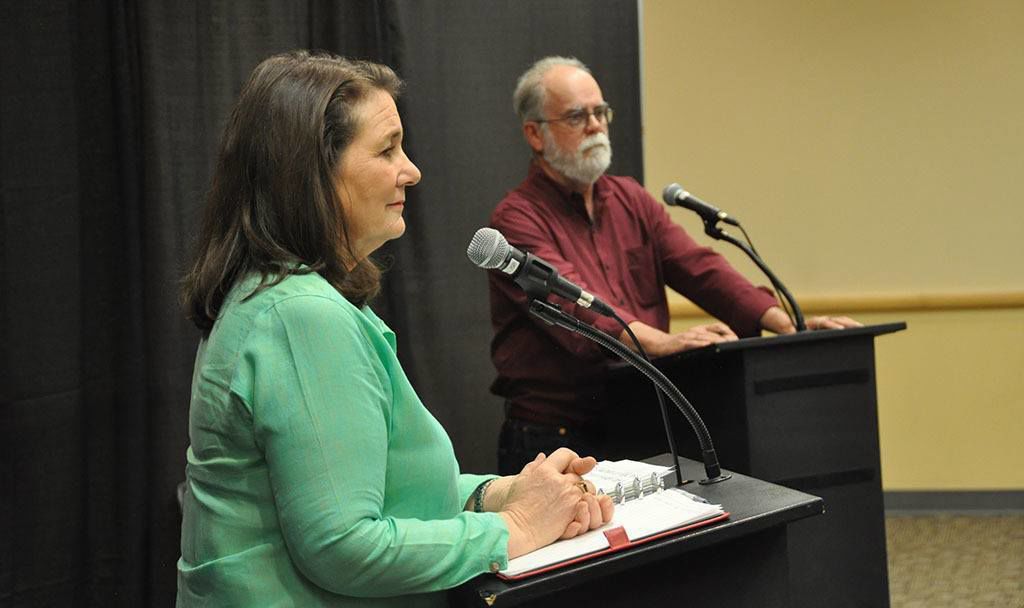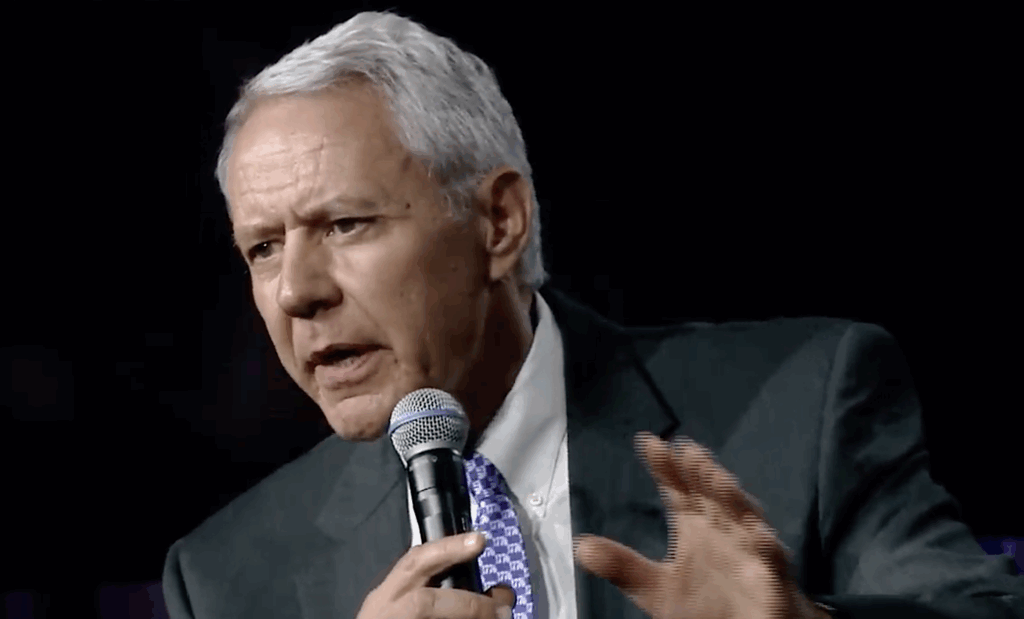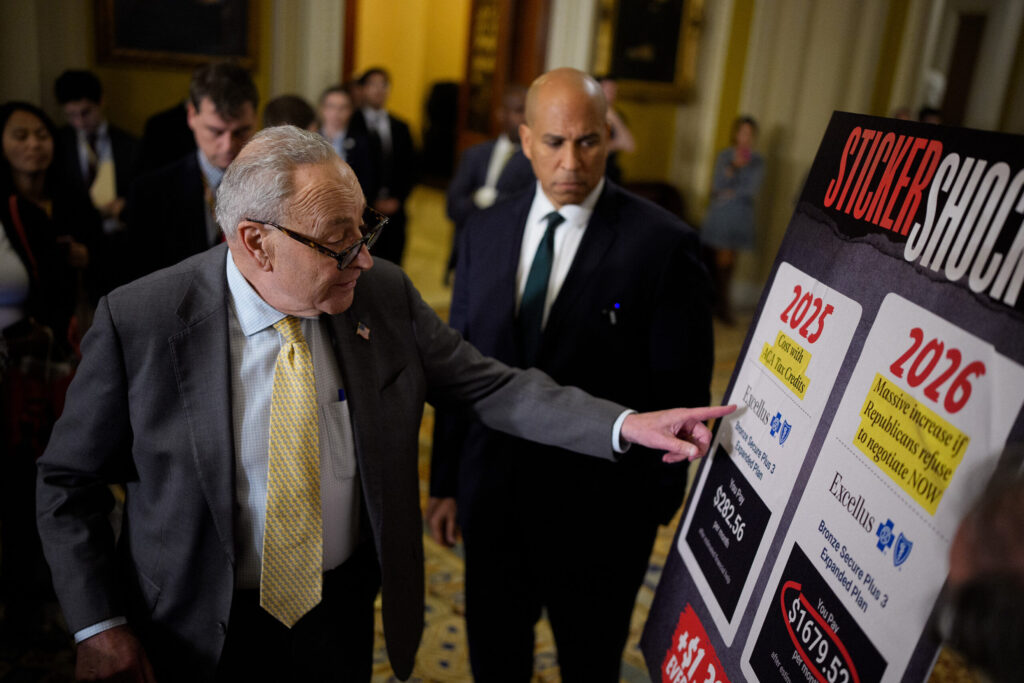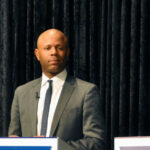Dems DeGette, Norris spar at CD1 primary debate

U.S. Rep. Diana DeGette says she isn’t taking anything for granted in the June primary, when she faces her first Democratic challenger in 14 years.
“I always run hard,” DeGette, 58, told The Colorado Statesman on Saturday after a 90-minute debate with challenger Chuck Norris. “As I’ve said, I think I need to make my case to the voters as to why they should rehire me. I’m happy to be here, and I’m happy to let people know.”
Norris, 68, a geologist and longtime Democratic activist, said the electorate is restless and growing, and that voters are ready for a change.
“What happened this year, unlike what happened eight years ago” – when President Barack Obama won the Democratic nomination over this year’s frontrunner, former Secretary of State Hillary Clinton – “and I believe is going to stay around. That’s going to make things uncomfortable for people of my generation. These are the kind of people who are going to raise some hell. I think it’s long overdue.”
While Norris isn’t taking sides in the divisive Democratic presidential primary – Clinton leads among pledged delegates but U.S. Sen. Bernie Sanders has vowed to stay in the race through the primaries – he said he agrees most often with Sanders and acknowledged he’s benefiting from the intense supporters rallying around the Vermont socialist.
“I’m very much more attuned to Bernie’s positions – no money in politics and aggression on carbon,” said Norris, who’s been waging his congressional campaign since just after the last election, long before Sanders was even running. “Because I knew it was going to be very divisive, the entrenched vs. the newcomers, I’ve largely stayed out of it.”
DeGette was first elected to represent the heavily Democratic Denver-based 1st Congressional District in 1996 and has won reelection easily – her opponents have only passed 30 percent of the vote once, and then only by a couple hundred votes – ever since. The only primary challenge she’s faced as an incumbent was in 2002, when she won over Denver City Councilwoman Ramona Martinez by 3-to-1.
Republican nominee Casper Stockham attended the debate, sitting near the back and taking notes throughout.
There was plenty of agreement at the debate, which was sponsored by the Colorado Young Democrats and held on the Auraria campus in Denver. Both candidates said they’d support the winner of the June 28 primary, and both agreed they share core Democratic values.
But DeGette argued that her experience and congressional seniority mean she’s more effective at advancing those values. Norris, pointing to the pervasive influence of money in politics, maintained that only by rejecting the big bucks can a member of Congress represent the people.
“The campaign has been based on a triad with three legs – cash, carbon and community,” Norris said in the debate. “Cash is a reference to the money in politics that’s been buying our government today on all levels. Carbon is shorthand for the climate change we’re doing with the gases we’re putting into the atmosphere. And community is the issues we have that, in the last five and 10 years, have steadily been fraying the fabric of our society.” He added, “What we have done in the past is not going to work in the present, and the change is here.”
“In Congress, I’ve been standing up for you, and I’ve been working to get things done,” said DeGette, who is serving her 10th term. She pointed to legislation she’s sponsored as examples of her effectiveness, including the 21st Century Cures Act, which passed by a wide margin in the House and awaits Senate action, and two renewable energy bill passed – “despite gridlock in Congress,” she noted – including one supporting small hydropower projects and another promoting LED technology to save energy.
“As co-chair of the Congressional Pro-Choice Caucus,” she said, “I led the fight to stand up against the defunding of Planned Parenthood. And, you know something? I won.”
DeGette listed comprehensive climate legislation, campaign finance reform – she is sponsoring a bill to establish public funding for congressional elections and another to require full disclosure of campaign spending – and efforts to make college more affordable as among her top priorities.
Both candidates had strong words when it came to a question about the Citizens United Supreme Court ruling – one of several rulings that opened the floodgates to seemingly unfettered campaign spending – and vowed to take measures to reduce the influence of money in politics. Norris called the decision “grotesque,” while DeGette called it “one of the worst pieces of jurisprudence coming out of the Supreme Court.”
Asked how the Democratic Party can unify after the presidential primary, DeGette smiled and said, “The best unifying method for us is going to be two words: Donald Trump.” As the crowd – about 80 attended the debate – chuckled, she continued: “Beyond that, seriously, as you see the two of us standing here today, we fundamentally agree on most issues. We might disagree on methods or approaches, but our core values as Democrats are the same. That’s why I think we’ll be able to unify ourselves as a party going forward.”
Norris observed that he’d seen plenty of extreme rifts among Democrats in the three decades he’s been volunteering for campaigns, but the party “invariably” comes together. “It wasn’t because of a common enemy,” he said, drawing cheers from his supporters. “A common enemy is an extremely poor way to bring people together. But it’s a common sense of unity, a common sense of goals, a common sense of what’s needed.”
“That said,” Norris continued, “the Democratic Party right now, like the Republican Party, is in danger of disintegrating by virtue of the fact that the people, the voters, the grassroots people in either party feel they’re losing control of the party, feeling that it is strictly the dollars, strictly the money, strictly the corporate influence that is buying and controlling the government right now.”
The solution, he argued, was to take the influence of money out of politics – and, as important, “The people who feel that way have got to be respected.”
The two also drew cheers and some scowls from the crowd during an exchange about the role of superdelegates – elected and party officials with automatic slots at the Democratic National Convention, a point of contention between Clinton and Sanders supporters. (DeGette has taken fire from Democrats for pledging her support to Clinton even though Sanders won the 1st Congressional District caucuses and convention by a wide margin.)
Norris said he doesn’t think the superdelegate system serves the party well, calling it unnecessarily divisive. “Any system that is designed to protect people from themselves – to protect Democrats from their own opinions – I think is inherently flawed,” he said. If the party keeps superdelegates, he said, elected representatives serving as superdelegates should be required to support the presidential candidate backed by their constituents.
DeGette agreed that it’s time to review the superdelegate system, which was established in the 1980s, adding that, “We should do so after this election.”
But she also maintained that some superdelegate slots could, perhaps, be maintained so that elected officials aren’t running against grassroots Democrats for convention delegate position.
Then, addressing the donkey in the room, she said, “There has been a lot of concern about the fact that my district supported Bernie Sanders at the caucuses and I’m a Hillary supporter.” Pointing out that she’s known Clinton for decades and is a co-chair of her Colorado campaign, DeGette recalled the split eight years ago when Clinton backers hung on until the national convention before throwing their support to Obama.
“But you know something, when Barack Obama got the majority of delegates, I supported him,” DeGette said. “If Bernie gets the majority of the elected delegates, I would do the same.” She added that she would hope the party would come together similarly “if the opposite is true.”
After the debate, Norris said he was troubled by the stark lines drawn between supporters of the two candidates.
“There is a difference this year over eight years ago. I do think the DNC and some of the dynamics this year are more dangerous to the party than just the split last time. The reliance of both parties on money, particularly post-Citizens United; the baiting of the people that say ‘Bernie or nobody’; there seems to be an attempt to marginalize, minimalize the people we’ve been talking about bringing into the party for the past 20 years,” he said. “I don’t like the dynamics on either side of the fight this time. I’m worried about it.”
– ernest@coloradostatesman.com














